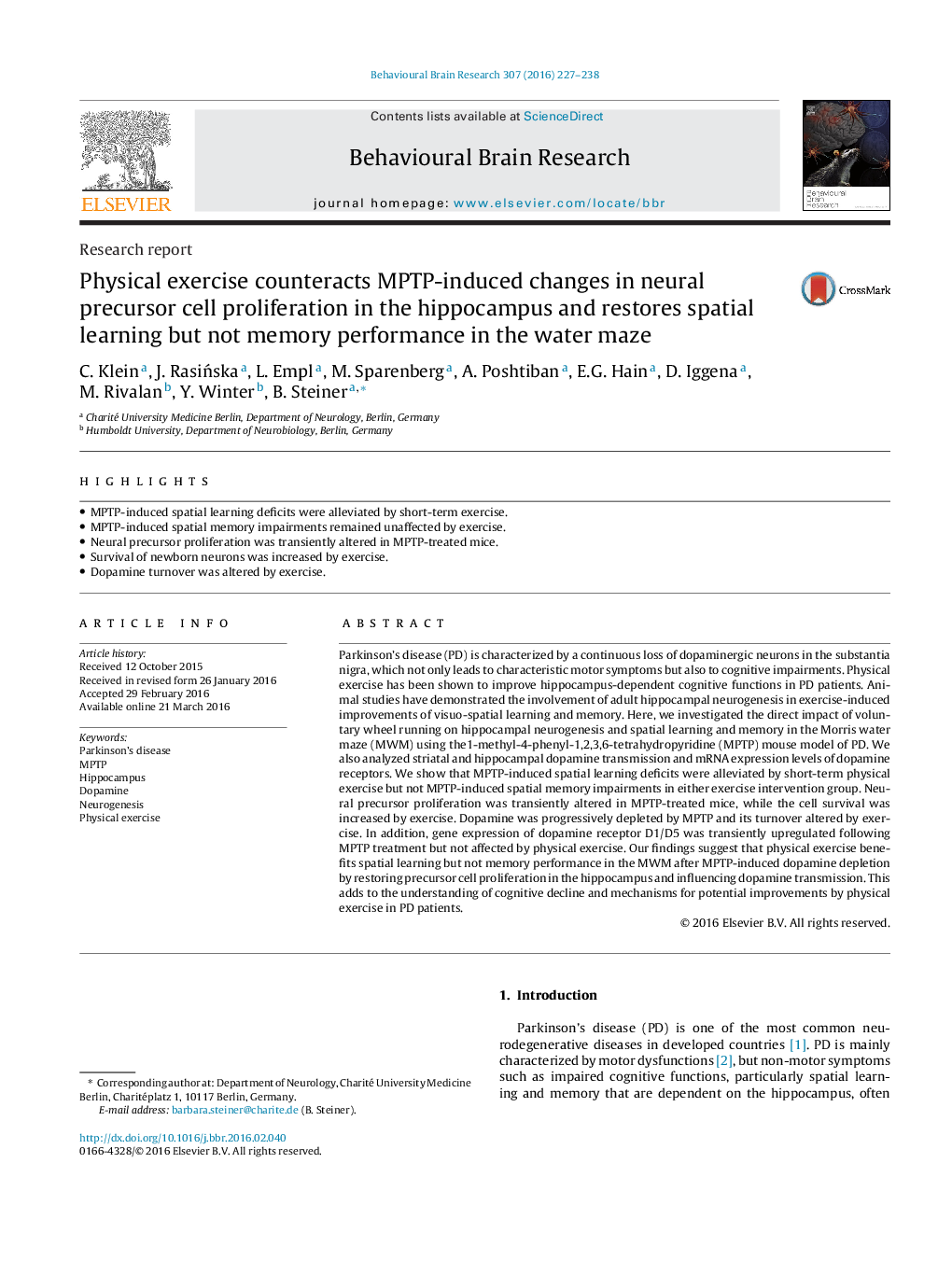| Article ID | Journal | Published Year | Pages | File Type |
|---|---|---|---|---|
| 4312271 | Behavioural Brain Research | 2016 | 12 Pages |
•MPTP-induced spatial learning deficits were alleviated by short-term exercise.•MPTP-induced spatial memory impairments remained unaffected by exercise.•Neural precursor proliferation was transiently altered in MPTP-treated mice.•Survival of newborn neurons was increased by exercise.•Dopamine turnover was altered by exercise.
Parkinson’s disease (PD) is characterized by a continuous loss of dopaminergic neurons in the substantia nigra, which not only leads to characteristic motor symptoms but also to cognitive impairments. Physical exercise has been shown to improve hippocampus-dependent cognitive functions in PD patients. Animal studies have demonstrated the involvement of adult hippocampal neurogenesis in exercise-induced improvements of visuo-spatial learning and memory. Here, we investigated the direct impact of voluntary wheel running on hippocampal neurogenesis and spatial learning and memory in the Morris water maze (MWM) using the1-methyl-4-phenyl-1,2,3,6-tetrahydropyridine (MPTP) mouse model of PD. We also analyzed striatal and hippocampal dopamine transmission and mRNA expression levels of dopamine receptors. We show that MPTP-induced spatial learning deficits were alleviated by short-term physical exercise but not MPTP-induced spatial memory impairments in either exercise intervention group. Neural precursor proliferation was transiently altered in MPTP-treated mice, while the cell survival was increased by exercise. Dopamine was progressively depleted by MPTP and its turnover altered by exercise. In addition, gene expression of dopamine receptor D1/D5 was transiently upregulated following MPTP treatment but not affected by physical exercise. Our findings suggest that physical exercise benefits spatial learning but not memory performance in the MWM after MPTP-induced dopamine depletion by restoring precursor cell proliferation in the hippocampus and influencing dopamine transmission. This adds to the understanding of cognitive decline and mechanisms for potential improvements by physical exercise in PD patients.
